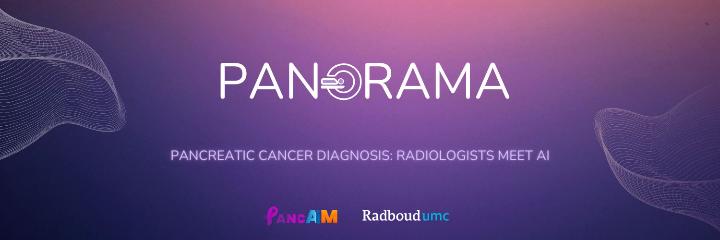PANCAIM organises PANORAMA Study: Pancreatic Cancer Diagnosis – Radiologists Meet AI!
In the context of PANCAIM project, coordinator Radboudumc is organising the first ever large-scale, international, multi-reader, multi-case study assessing and comparing radiologists and AI for pancreatic cancer diagnosis:
PANORAMA: Pancreatic Cancer Diagnosis – Radiologists Meet AI!
 |
PANORAMA is the world’s first international reader study and AI grand challenge for PDAC detection on CECT where radiologists and AI algorithms from across the globe will be assessed in a standardized, bias-free environment. With over 1500 patients involved, this cutting-edge, multi-center study is poised to redefine early pancreatic cancer detection! Its design is forged in collaboration with a scientific advisory board comprising 13 international experts in radiology, histopathology, surgery, and AI.
PANORAMA consists of two sub-studies:
- An AI study where an annotated dataset representing clinical reality will be used by global AI development teams to develop AI models. Trained algorithms will be submitted to the GrandChallenge platform for evaluation. Submitted algorithms will be ranked based on their performance on a hidden testing cohort of 400 unseen scans.
- A reader study which will include around 400 cases from multiple institutions that will be read by a panel of 40+ international readers with varying levels of expertise.
Ultimately, PANORAMA aims to benchmark state-of-the-art AI algorithms developed in the grand challenge, against abdominal radiologists participating in the reader study to evaluate the clinical viability of modern pancreas-AI solutions at PDAC detection and diagnosis in CECT.
To learn more, check out the article on the PANCAIM website!
If you are an abdominal radiologists handling contrast CT scans in your routine clinical practice and interested to join the PANORAMA reader study, please sign up using this form and be part of this journey to push the boundaries of early pancreatic cancer detection!





